This post is also available in:
![]() Français (French)
Français (French) ![]() Русский (Russian)
Русский (Russian)
By Natalia Yurevich
Elisabeth Dancet is a Talent Management consultant from Paris. She specializes in professional women coaching. Recently, Elisabeth made a major career change: She got involved in Animal Protection and became the director of a web documentary “Remarkable Women” about women who devoted their lives to helping endangered animals.
In the interview with Madame Success Elisabeth explained why she decided to share the stories of women who work with animals. We discussed her documentary project, what recommendations she gives to women as a coach, and how each of us can easily help to protect the environment in less than 10 seconds.
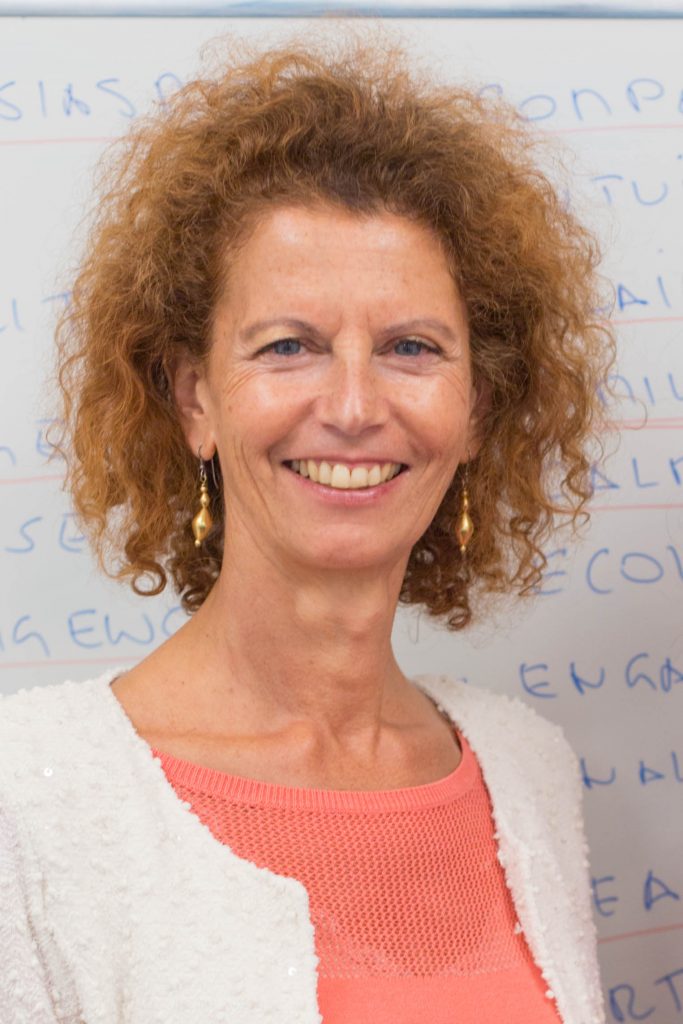 Elisabeth, thank you for making the time for this interview.
Elisabeth, thank you for making the time for this interview.
For the last 6 months, you’ve been working on your web documentary “Remarkable Women”. Please tell us about it.
“Femmes Remarquables” (Remarkable Women) is a web series consisting of several episodes. Each episode tells a story of a woman who is helping to save animals in difficult conditions.
The main goal of “Remarkable Women” is to bring forward new inspiring female role models and to help to save endangered animals.
How did you get the idea of a web documentary?
When I was little, I loved a French book called Babar.
 It was written in the 30s and got translated into multiple languages. It is a story of a little elephant and his family, his time at school, his travels, his best friends.
It was written in the 30s and got translated into multiple languages. It is a story of a little elephant and his family, his time at school, his travels, his best friends.
I loved the story but as I grew up,
I realized that we often tell to kids only one part of the story, we make an accent on the cuteness of the animals, the moments of friendship between humans and animals, and we often fail to mention what is happening to the animals in reality and why they are now endangered.
Maybe, it is no coincidence that the idea of my project got shaped when I learned about the mass slaughter of elephants that has been happening over the last century in Africa.
Just look at some numbers:
At the beginning of 20. century, there were about 10 million elephants on the African continent. In 2016, we have less than 400,000 elephants left. One elephant is killed every 15 minutes.
It is important for me to stop this massacre.
These numbers are very troubling.
They are.
But I also learned about the Orphants Project, a baby elephant orphanage in Kenya. It was founded by Dr. Dame Daphne Sheldrick. She saved the lives of so many baby elephants by feeding them with the milk formula she invented.
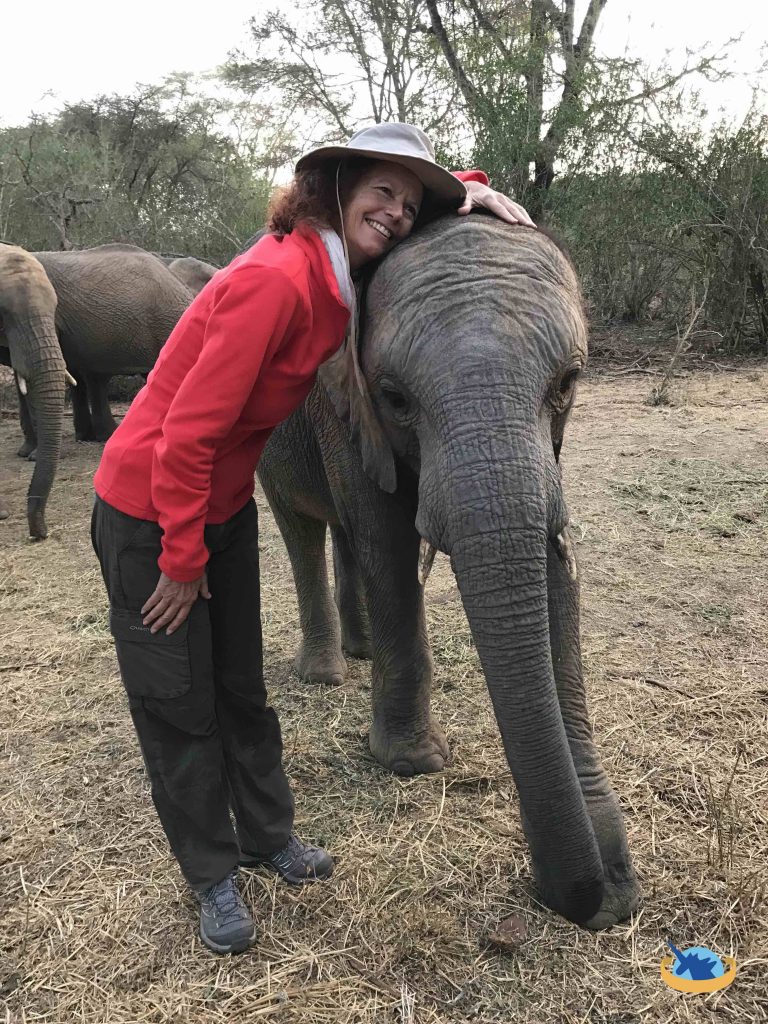
She is the first person to have perfected the milk formula and necessary husbandry for infant milk-dependent Elephants and Rhinos.
Daphne is a recognized international authority on the rearing of wild creatures. I found her story impressive and decided to make a film.
Why did you choose the format of a web series?
I decided to start with a web series because it can be easily shared on the internet and it’s a great way to spread the word fast.
Besides, instead of losing time on waiting for financing necessary for a documentary production, I just went ahead with filming. I decided to invest my own funds. Today, I look to partner with a production company and a TV channel to reach a larger audience.
Along with filming and screenwriting, you have a solid background in professional coaching. Lately, you’ve been mainly working with women. Why is it so?
I’ve been working as a consultant in Talent Development for 20 years and along the way, I have been offering professional coaching for managers at different levels. It is often needed when people change jobs, climb up the career ladder, or face new challenges.
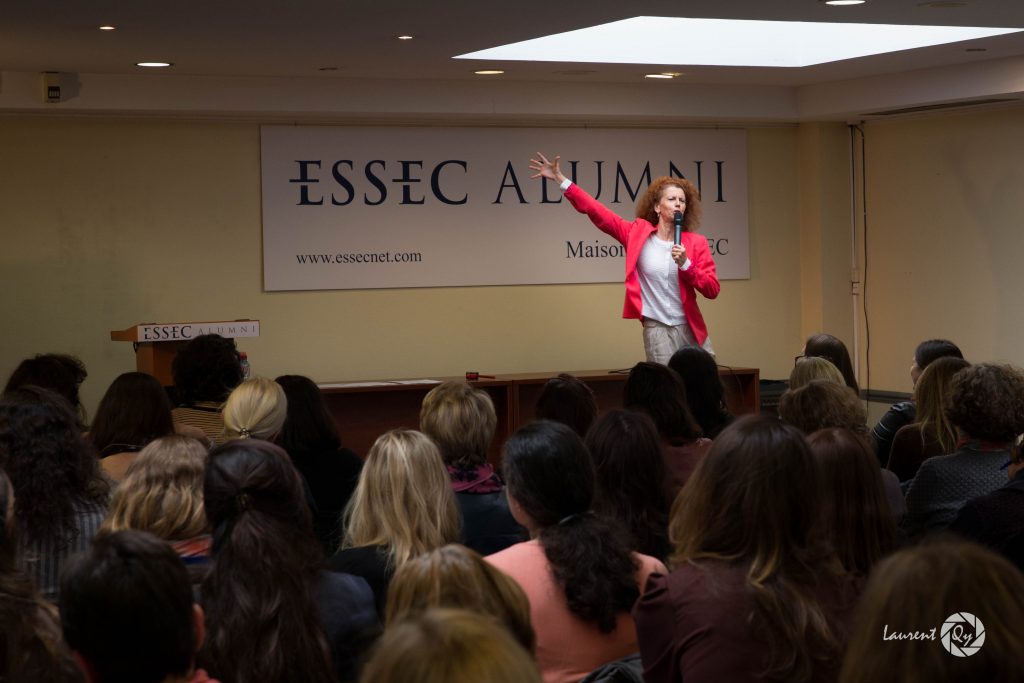
The more I worked with women in the leading roles, the more I realized that women have more challenges than their male counterparts because they often have more family responsibilities besides their career.
On top of that, they tend to want to be perfect at everything: be a good mother, a good manager and even if they succeed, they might have a lower self-esteem.
I wanted to help women to feel more comfortable with themselves and their work.
What do you recommend to your clients as a solution for the most typical female problems?
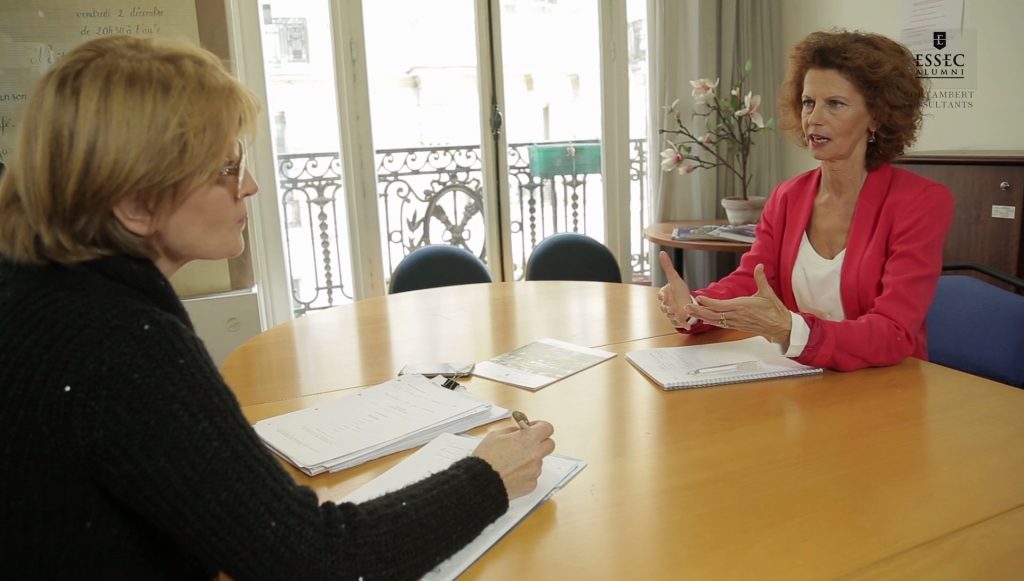 My three main recommendations are:
My three main recommendations are:
- First, accept that we can’t succeed at everything all the time. We are bound to fail. And it’s ok if it’s not working 100 percent in every sector of your life.
- Second, rely much more on delegation and partnership. There’s no need to do everything yourself.
- Third, communicate more! Today we live in a world of communication and networking. Women love to communicate, this is our strength, we should use it more, it can help us to succeed individually and collectively.
How did you turn from coaching to filming?
I started using videos in my coaching sessions. They were very helpful for getting better results in public speaking. I also worked with a dedicated team to film my clients’ interviews and video presentations.
I learned screenwriting in Paris, and later in Los Angeles in a professional film school and got additional qualifications in filming.
Why did you get involved in Animal Rights?
I am a Highly Sensitive Person, for me, it is hard to ignore Animal Issues.
Besides, I am very much an outdoors-woman.
When I am in nature, I feel at home, I feel connected to Mother Earth. And I felt like I had a call from Mother Earth asking me to do something to help the current situation.
When did you first feel connected to Mother Earth and how did you understand that now is the right moment?
It probably started in my childhood. I was born in the Alps. Going skiing and hiking in the mountains has always been a special pleasure for me. I’ve always been deeply touched by the landscape beauty.
My father was an engineer, and my mother was staying at home to take care of the kids.
I have two sisters. We lived next to a farm and when I was a kid, I loved visiting it to play with the animals that they had there.
I kind of lost that bond over the years, but at some point, I got back to it.
I realized that nature is very nourishing for me, it helps me to rebuild myself.
A call from Mother Earth for me feels like a call for more feminine energy. It is a call for more harmony, more balance between the feminine and masculine energy on our planet.
The heroines of “Remarkable Women” series succeeded in creating this harmony.
I believe we can learn from them. If more people follow their example, if each of us does her little share, we are bound to bring positive changes to our world.
How would you describe your younger self?
I was a mix of an adventure seeker who was dreaming to see the world and a bookworm. I could be buried in a book for hours and then ride my bike or hike around for the rest of the day.
During my teenage years, I went through a rebellion period. I believed that the world was very unfair to women like women didn’t have the same possibilities as men, they were supposed to stay at home and raise kids.
For example, my mother didn’t have that much choice at her time. I wanted to have a different life and I felt that I wanted to have a career and be independent.
What are your favorite books if any?
I read a lot of books!
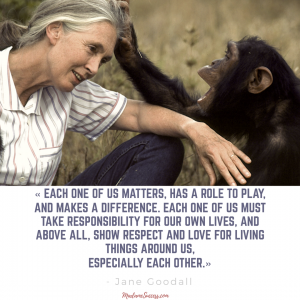
The one I recommend the most is “Harvest For Hope: A Guide to Mindful Eating” by Jane Goodall, a world-renown scientist and conservationist.
In this book, she scrutinizes human eating behaviors and argues that we should change. This book is very much in tune with what I am doing today.
Who were your role models?
When I was young, I didn’t want to look up at the male role models.
I admire courageous women.
Courage for me means giving love, taking care of other people, sharing, taking a risk to be different.
For instance, Malala Yousafzai. She is such an inspiring and courageous girl.
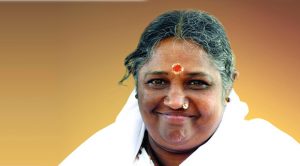
Amma, an Indian spiritual leader, who embraced over 60 million people in a year. She is spreading love on the Planet.
But I believe that every woman deserves admiration.
Take a common feminine task, such as taking care of the old, sick or dying people. Most of this work is done by women but it’s hardly recognized by society.
And yet, society would collapse if one day women stopped doing it.
Did you read any prominent French feminist writers?
Sure. Simone de Beauvoir and Simone Veil are among the most well-known and the most influential in France. They did so much!

When I am invited to speak at conferences, I often talk about Marguerite Yourcenar. She is a famous writer, and the first woman to be elected to the Academie Francaise in 1980. They had only accepted men before her!
Even 40 years ago, she raised the subject of protecting the planet, preserving oceans, the importance of connection to the animals. She was a visionary indeed, a vegetarian, ahead of her time. She is one of the inspiration sources for my project.
I also admire Louise Michel, a revolutionary woman from the XIX century. She fought for women’s rights, gave speeches all over Europe: in France, Belgium, England…
And she also fought for animals rights! One of her nicknames was “la Louve rouge”, the Red She-Wolf.
I believe, she was really a personality of the time.
What is your spirit animal?
I could associate myself with a she-wolf. They have something domestic and something wild.
They can be living with us as dogs, but they also have this call for wilderness and independence.
How do you find your heroines?
At the time of 2015 COP in Paris, I participated in a citizen initiative. There I heard about a female zoologist Birute Galdikas who is the founder of orphanages for baby orangutans in Indonesia.
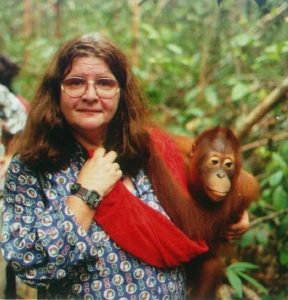 You might know that the natural habitat of orangutans, the rainforest, is being massively destroyed because of the planting of palm oil trees. Palm oil is widely used in food, cosmetics, and other industries and it is very cheap to produce.
You might know that the natural habitat of orangutans, the rainforest, is being massively destroyed because of the planting of palm oil trees. Palm oil is widely used in food, cosmetics, and other industries and it is very cheap to produce.
Indonesia is one of the countries that got very heavily affected by deforestation, it enormously endangered the orangutans’ population to the point that they might even disappear. That woman agreed to come to speak at the conference and I followed my intuition to make an episode about her.
I also do a lot of research.
For example, I spent some time researching the situation with the bears in Europe, and that’s how I found Cristina Lapis, a woman from Romania who created Libearty Bear Sanctuary, a big preservation area to save mistreated bears in Eastern Europe.
Sometimes, I get leads from other people. I got introduced to a French woman who works with the sea mammals.
Another time, an animal foundation contacted me to share information about a German woman who lives in Spain and runs shelters for greyhounds, the hunting dogs who are often very badly treated, with incredible cruelty once they become old and can’t hunt anymore.
The stories of cruelty to animals are very emotionally charged. Is it hard for you to work on them?
I was spared from filming the scenes of violence, however, even looking at the footage gives you nightmares. But this also makes me want to do everything I can to stop it.
I believe that many of us feel some sort of connection to animals. We love animals from a very early age. Why not cultivate this connection? It can make us happier, and make our world a much friendlier place.
If we could alleviate the suffering of animals, we could also lessen the suffering of human beings.
What helps you to tell a good story?
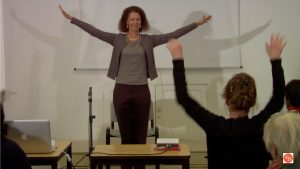
I have limited resources for filming animals that’s why good storytelling is very important.
People who work on films about the animal world are likely to spend weeks of filming to be able to capture tiny moments that would be included in the final version. I surely have neither that time nor the resources.
So I try to be creative with the script. I might reorganize the script to keep my audience’s attention.
For example, when I filmed the elephants, it took a lot of time until we could film them doing something fascinating. They are very slow animals and need to eat so much!
I try to make the scenes more compelling for my audience by using a voice-over to tell people some facts or add some personal stories.
Who should watch the “Remarkable Women” series?
Anyone who is interested to learn about what other women do to make our planet a better place. Also, anyone interested in animal protection or environmental issues.
Our videos can be very appealing to Highly Sensitive people because it’s a mix of beauty and emotions, you do see suffering too, but you are seeing not only the worst but also the best of humanity!
Working on a video project certainly takes a lot of time. What helps you to get organized?
Besides filming, I also manage the association, take care of the financial and business aspects, it’s a lot!
I try not to forget to ask for help.
I also started looking for people who can support me in different areas.
How do you prioritize?
I usually plan for a week because I need to know what to prioritize, whether I have my coaching sessions, editing, meetings, filming etc
I don’t even use a Google calendar, just a normal one.
How does it feel to work on something so dear to your heart?
When I worked on the episode about the bears, I wanted to film the she-bear with her cubs.
When we approached, the animal got nervous, so we stood there for a long time, keeping quiet until at a certain moment the mother bear trusted that she was ok in our presence, and we were able to film a very cute scene of her taking care and feeding her little ones.
This was an amazing moment, I felt so happy and I wouldn’t change it for anything else.
Did you have this kind of moments in your previous career?
They probably were more mental, like winning a new contract or getting a new client but I feel more engaged in my work now.
I feel that it is slightly more difficult to have such moments in a corporate world because you work on achieving the goals of the organization, and you may or may not agree with those goals or the ultimate purpose.
Today, I am surely taking a risk but if I said to myself when I started: “Why invest your own time and money? Keep this money to yourself, renovate your house, save for retirement etc..”, nothing of this would have happened.
And I might have regretted it.
What does success mean to you?
To be successful means to attain your goals, to find your purpose but it is so much more than that.
To me, it is important to be in tune with who you are. When your being and soul are aligned together, miracles happen.
How do you spend the first 60 minutes of your day?
I meditate.
I’ve been meditating on and off for a long time but now I am doing it on a regular basis.
How long do you meditate?
For about an hour, I need enough time to get into the right mindset, one hour is optimal for me.
I often encourage people to try meditation.
I see it this way: the more people meditate, the more peace inside we have, the more peace we create around us, it’s contagious.
What time do you usually wake up?
I wake up at 7 am but sometimes I would wake up an hour earlier, at 6 am.
Do you start working right after your meditation session?
I first take my breakfast.
What do you usually have for breakfast?
I love having some fruit. I would mix crushed banana with Camelina oil, it is known for having a lot of good Omega 3. I would add some lemon juice, nuts, some other fruits of the season, and I would have it with a great cup of tea or coffee, depending on my day.
If I am hungry, I would eat a bit of bread, but usually, I stick to my fruit mixture breakfast.
What would you recommend to women who would like to do more for animal protection?
- There’re many shelters for lost animals that often need help and/or adoption, they are a good place to start if you are interested in supporting animals.
- Don’t stay silent about the animal abuse cases.
- Be a responsible consumer. For example,
You can always check whether the products from your supermarket contain palm oil and make a conscious choice not to buy them. It takes a second to check, but it can change a lot!
- I also invite you to contribute to our association “Terre de Licorne”. If you want to work for a good cause, we are always happy to get support for different projects. Currently, we are looking to reinforce our communication and marketing channels. Reach out and we can talk.
Elisabeth, what’s next for you?
On January 31, 2018, we are releasing the new episode of “Femmes Remarquables”, telling the story of Daphne Sheldrick, the founder of baby elephant orphanages in Kenya I mentioned earlier.
You’ll be able to watch it later on our YouTube channel. If you happen to be in Paris, you are welcome to come to the screening.
I will also be participating in some conferences and talks on the Environment Protection in Brussels and Berlin.
I am negotiating with broadcasting companies interested in working on this documentary series. I am researching the possibilities of partnering with a TV channel. It is time to raise funds, this year is going to be very busy.
But we have new exciting episodes of the series coming out of production soon, so stay tuned!
We certainly will! Thank you for your heart-warming interview.
Useful links, addresses, and notes
Connect to Elisabeth Dancet:
Personalities:
- Daphne Sheldrick
- Birute Galdikas
- Cristina Lapis
- Malala Yousafzai
- Amma
- Simone de Beauvoir
- Simone Veil
- Marguerite Yourcenar
- Louise Michel
- Jane Goodall
Books:
- The Story of Babar
- “Harvest For Hope: A Guide to Mindful Eating” by Jane Goodall
Images: Courtesy Elisabeth Dancet